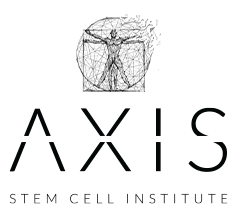
Neurological
our areas of focus
WHAT ARE NEUROLOGICAL CONDITIONS?
The nervous system is responsible for your body’s functions, processes, and reactions to stimuli. It also has many complex internal responsibilities that help the body to function. Neurological conditions affect the many different areas of the nervous system, which can include the brain, spinal cord, nerves, nerve roots, neuromuscular junctions, and muscles. These conditions usually occur because of problems with structure, biochemical abilities, or electrical abnormalities that prevent the nervous system from functioning normally. There are many different types of neurological conditions and they affect a startling amount of people around the world.
WHAT CAUSES NEUROLOGICAL CONDITIONS?
Because there are so many types of neurological conditions, it’s difficult to determine the cause. Most often, neurological conditions are caused by genetics, congenital disorders, injury, or infections. They can also be caused by autoimmune responses or conditions that spread from areas that interact with the nervous system. We look at a complete picture of your health, environmental factors, and lifestyle to create the right plan for you and your symptoms.
Neurons make up the bulk of your nervous system and don’t replace themselves when they are damaged or become inefficient. Over time and because of different reasons, this can cause neurodegenerative diseases that can greatly affect your quality of life because of difficulty moving or thinking. Some well-known neurodegenerative diseases are Parkinson’s disorder, Multiple Sclerosis, and amyotrophic lateral sclerosis (ALS).
WHAT ARE COMMON NEUROLOGICAL CONDITIONS?
Post Stroke Deficits
Strokes, also called cerebrovascular accidents, can be sudden and life-threatening. However, survivors can be left with difficulties functioning because of the brain cell death that can occur during a stroke. Stroke can be caused by ischemia or blood flow to the brain – but can also be caused by bleeding on the brain, ruptured aneurysm, blood clot, etc. When these cells die, the functions in the brain that they support can be compromised. The after-effects of a stroke can be as minor as a temporary weakness or as severe as permanent paralysis.
Parkinson’s Disease
Parkinson’s disease is caused by the degeneration of cells that create dopamine, which is a chemical messenger in the brain. As a disorder of the central nervous system, Parkinson’s disease results in disordered movement, typically including tremors. Patients may also experience stiffness, loss of balance, or slowed movement. Stem cell therapy can be effective for some Parkinson’s patients by introducing new dopamine cells to the brain to reduce their symptoms.
Amyotrophic Lateral Sclerosis (ALS)
Amyotrophic Lateral Sclerosis (ALS), also known as Lou Gehrig’s disease, is a nervous system disease that weakens the muscles and affects physical function. ALS is caused by the breakdown of nerve cells, which reduces the functionality of the muscles they are connected to. Progressive muscle atrophy, muscle spasticity, and key neuropathologic features of loss of anterior horn cells and sclerosis in the lateral columns of the spinal cord. Some forms of stem cell therapy, such as induced Multipoint stem cells, have been used to treat patients with ALS. These therapies work by introducing new astrocytes to the body, which are the cells that support nerve cells and their function.
Paralysis
Paralysis can be the result of multiple causes. Many patients face paralysis after a traumatic injury to the brain or spinal cord. Temporary or permanent loss of the ability to complete voluntary muscle movements due to damage in the connection between the brain and the body is disrupted. Clinical studies have found that stem cell therapies can help restore some motor functions and improve neurological function. In these cases, stem cells have been found to be effective in regenerating cells after a spinal cord injury.
Traumatic Brain Injury
Traumatic brain injuries can be catastrophic for sufferers and those around them. It can require a long and difficult recovery, which may not always include a return to the patient’s previous state and personality. Because the brain defines us and makes up who we are, injuries to the brain can have effects that are more emotional and damaging to relationships because of their effect on the patient’s personality. More severe brain injuries can even cause long-term difficulties like loss of motor function, speech patterns, and cognitive ability.
Multiple Sclerosis (MS)
Multiple sclerosis (MS) is a disease in which the immune system attacks and degrades the protective myelin sheath surrounding the nerves, leading to disruption of the impulses sent from the brain to the body. There are many symptoms of MS that patients may experience, including pain, vision loss, fatigue, and lost coordination. Stem cell therapy has been shown in clinical trials and among our patients to improve symptoms of MS and slow the degradation process through an infusion into the spinal canal.
Neurological FAQs
Can neuropathy be reversed with stem cells?
Nerve damage, such as neuropathy, can be treated with stem cells, which are injected into the area of need along the damaged nerve pathways.
Can stem cells regrow nerves?
Stem cells can be used to regenerate or repair many types of tissue, including damaged nerves or neurocytes.
How can I reverse neuropathy naturally?
Some natural treatments for neuropathy include vitamin supplements (such as vitamin B or vitamin D), exercise, physical therapy, and stem cells.
How can stem cells help neurological disorders?
Stem cells help treat neurological disorders through immune system modulation and direct access via the spinal fluid in which the stem cells are placed for circulation in the CNS. This treatment allows the body to repair or regenerate damaged or diseased nervous or cerebral tissue.
Can stem cells heal brain damage?
Studies show that stem cells can be used to repair damaged brain tissue for some patients suffering from traumatic brain injury, neurodegenerative conditions like MS and Dementia, and post-concussive syndrome. Stem cells are placed in the spinal canal for uptake into the Spinal fluid which can access the brain through circulation. This stimulates the repair of damaged nerves and cerebral tissue.
LEARN MORE ABOUT HOW STEM CELLS CAN HELP
Neurological conditions can be taxing on your mind, body, and those around you. It can feel like treatments for these conditions are lacking or not developing quickly enough. Stem cells gathered from fat tissue have shown promise in helping to regenerate important tissues in the nervous system. Learn more about how adipose-derived stem cells can help.
SCHEDULE A CONSULTATION
Neurological conditions can require a long and difficult recovery. At Axis Stem Cell Institute, we provide guidance, options, and a caring hand to help you achieve your best life and a healthy lifestyle. The field of neurological study is complex and difficult, but we offer the most up-to-date solutions and scientific information to ensure that you know your options and make the best decisions for you and your health.
Stem cells can be an effective and promising option for restoring the nervous system and your body’s important functions. Your first step is speaking with our stem cell experts, who can recommend the best options for you and create a therapeutic plan that restores your quality of life and health. To begin discussing your options for regenerative medicine, contact our Seattle or St. Petersburg office by calling 206.823.0960 or filling out our online form. Our expert patient coordinators can assist you with the booking process and any questions you may have.
Not ready for an appointment? ask us below!

